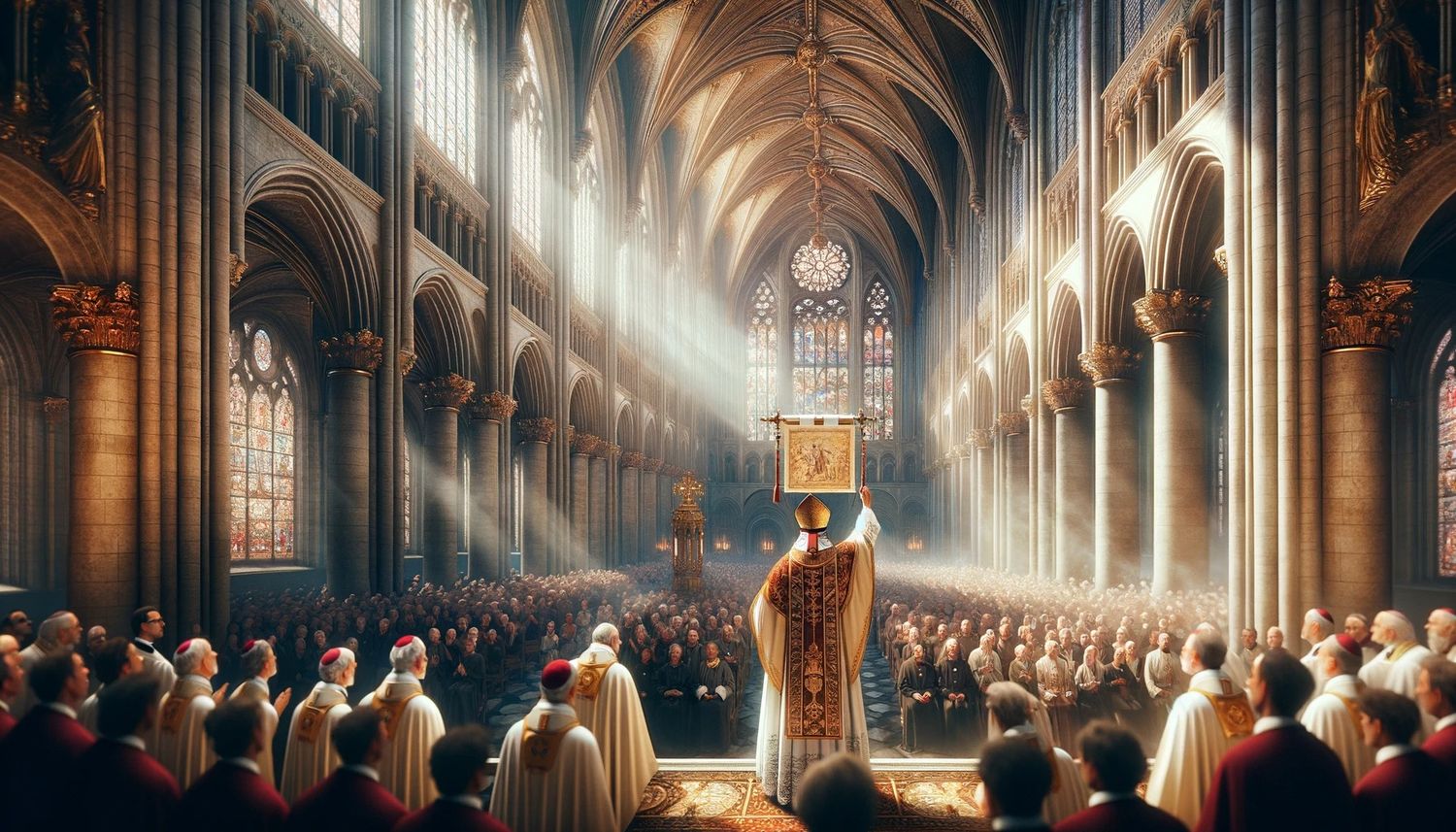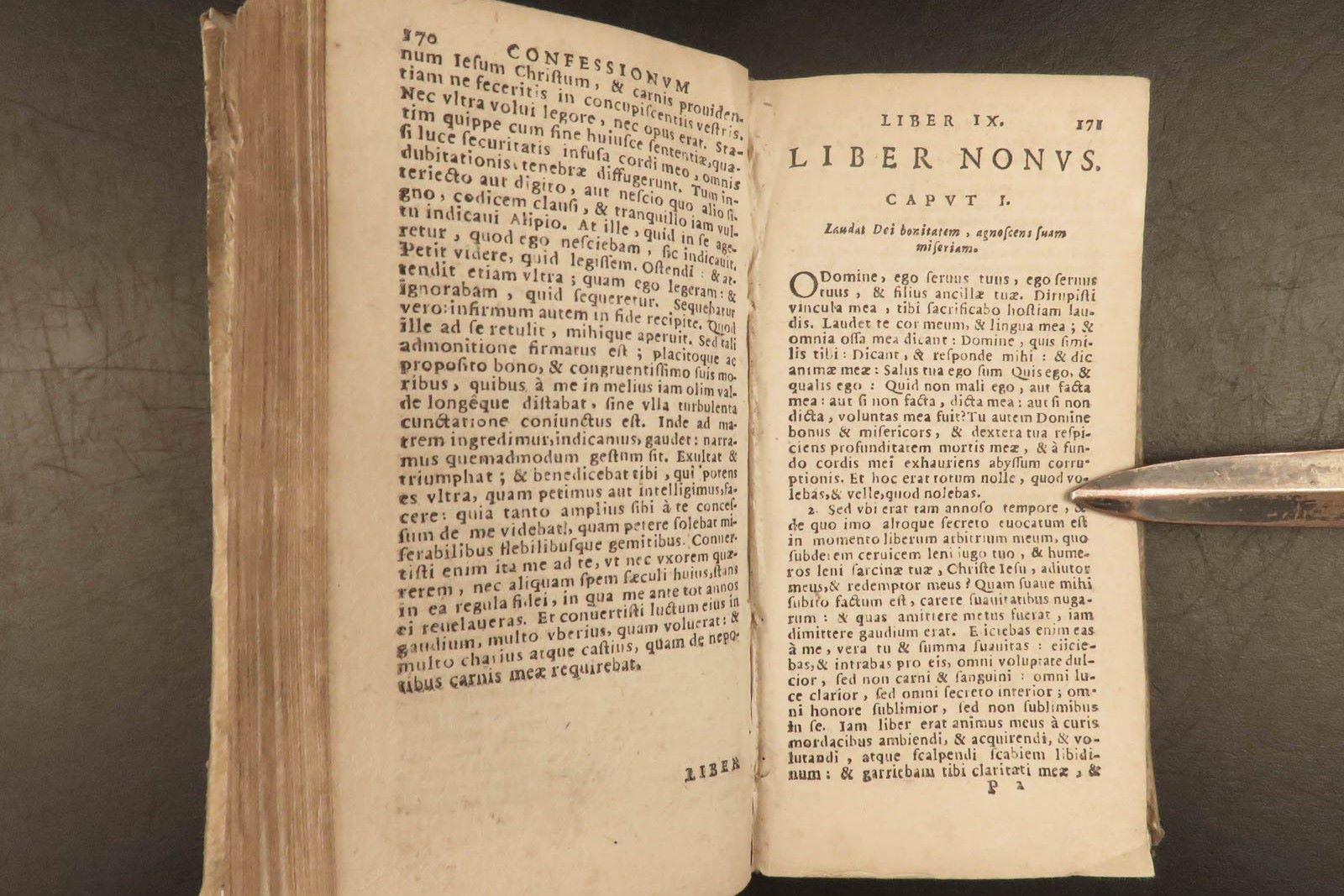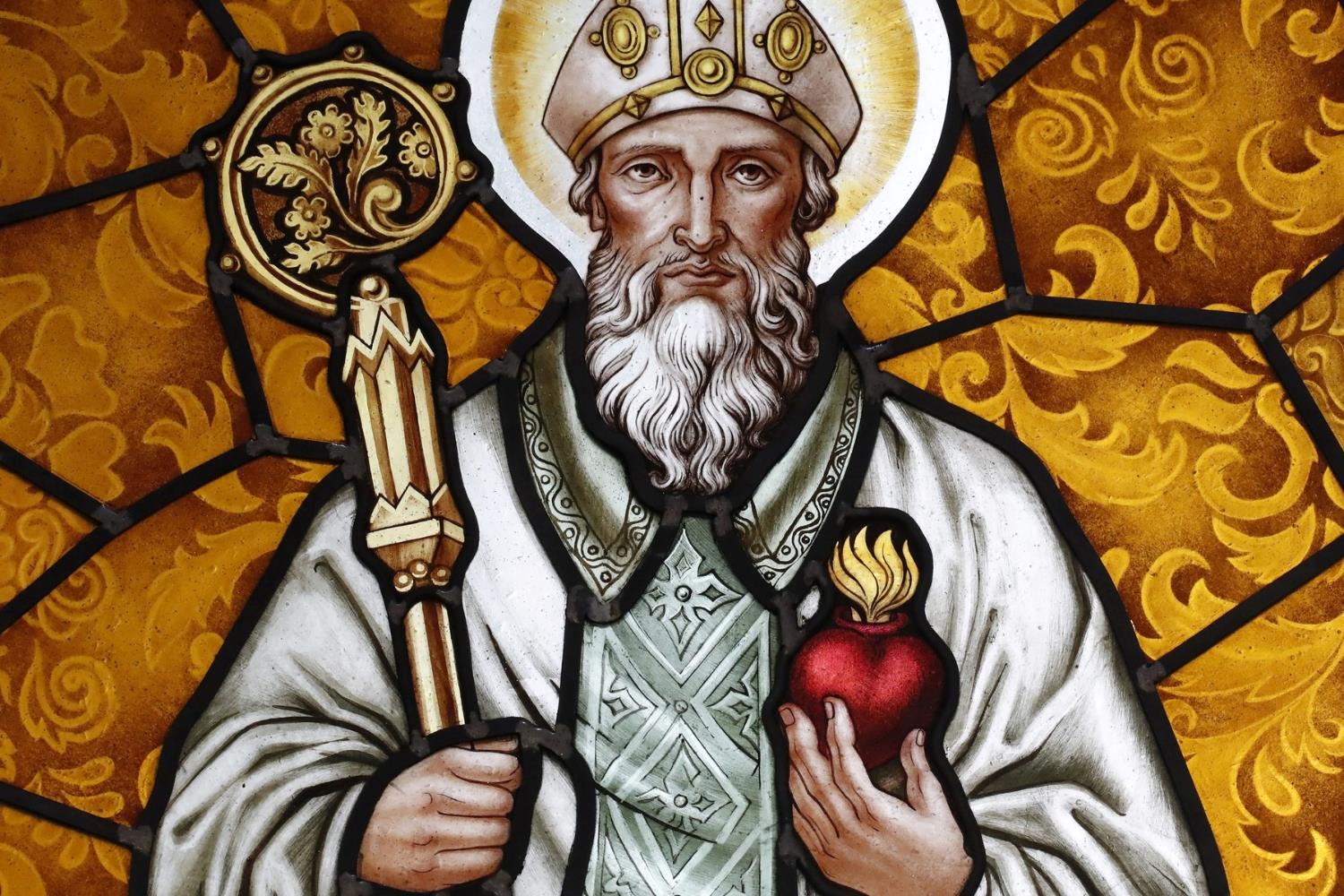Home>Theology and Spirituality>What Are Saints In Catholicism


Theology and Spirituality
What Are Saints In Catholicism
Published: February 15, 2024
Jason DeRose, Managing Editor at Christian.net, uses his expertise in religion and journalism to deepen understanding of faith's societal impacts. His editorial leadership, coupled with a strong academic background, enriches the platform’s diverse content, earning him recognition in both journalism and religious circles.
Learn about the significance of saints in Catholicism and their role in theology and spirituality. Explore the rich tradition and beliefs surrounding these revered figures.
(Many of the links in this article redirect to a specific reviewed product. Your purchase of these products through affiliate links helps to generate commission for Christian.net, at no extra cost. Learn more)
Table of Contents
Introduction
In the rich tapestry of Catholicism, saints hold a revered and cherished position. These individuals, known for their extraordinary piety, selflessness, and unwavering commitment to God, serve as beacons of inspiration and intercession for the faithful. The concept of saints in Catholicism is deeply rooted in the tradition and theology of the Church, playing a pivotal role in the spiritual lives of millions of adherents worldwide.
The veneration of saints is a hallmark of Catholic devotion, reflecting the belief in the communion of saints, which encompasses the living, the deceased, and those undergoing purification in purgatory. This communion transcends the boundaries of time and space, uniting believers across generations in a spiritual fellowship. Saints, as exemplars of faith and virtue, embody the aspirations of the faithful and offer tangible models of holiness to emulate.
The allure of saints lies not only in their extraordinary deeds and miraculous intercessions but also in their relatability to the human experience. Their lives, often marked by trials, tribulations, and profound encounters with divine grace, resonate with the universal struggles and triumphs of humanity. Through their stories, Catholics find solace, encouragement, and a sense of kinship, knowing that these paragons of faith navigated the complexities of earthly existence with unwavering trust in God.
Furthermore, the veneration of saints underscores the Catholic belief in the mystical body of Christ, wherein each member, living or deceased, contributes to the spiritual welfare of the whole. This interconnectedness fosters a sense of solidarity and communal support, as believers invoke the intercession of saints in times of need, seeking their prayers and guidance on the journey of faith.
As we delve into the multifaceted realm of saints in Catholicism, it becomes evident that their significance extends far beyond mere historical reverence. Rather, they embody the enduring vitality of the faith, serving as conduits of grace and sources of inspiration for those navigating the complexities of the human condition. In the subsequent sections, we will explore the definition of saints in Catholicism, the intricate process of canonization, the pivotal role of saints in the spiritual life of Catholics, as well as the controversies and criticisms that have surrounded the veneration of saints.
Read more: How To Become A Saint In Catholicism
Definition of Saints in Catholicism
In Catholicism, saints are individuals who have exemplified profound holiness, exceptional virtue, and unwavering devotion to God during their earthly lives. They are revered as models of spiritual excellence and are believed to be in the presence of God in heaven, interceding on behalf of the faithful. The concept of saints is deeply intertwined with the theological understanding of the communion of saints, which encompasses the interconnectedness of the entire body of Christ, including the living, the deceased, and those undergoing purification in purgatory.
The process of recognizing individuals as saints is rooted in the belief that their lives and actions reflect the transformative power of divine grace. Saints are not merely historical figures or legendary icons; rather, they embody the lived experience of holiness and serve as tangible examples of the Christian life. Their stories inspire and uplift believers, offering glimpses of the extraordinary ways in which God's grace can manifest in human existence.
Furthermore, saints are venerated for their role as intercessors, bridging the gap between the earthly realm and the divine. Catholics believe that saints, having attained the beatific vision in heaven, are able to pray for and aid those still navigating the trials and tribulations of earthly life. As such, the veneration of saints is characterized by a profound sense of spiritual communion, wherein believers seek the intercession and prayers of these holy figures in times of need.
The Catholic Church recognizes a diverse array of saints, ranging from early martyrs and theologians to humble servants and mystics. This inclusivity reflects the universal call to holiness, emphasizing that sanctity is attainable across various vocations and walks of life. The lives of saints are commemorated through feast days, devotional practices, and the invocation of their intercession in prayers, underscoring their enduring impact on the spiritual landscape of Catholicism.
In essence, saints in Catholicism embody the timeless pursuit of holiness and the transformative power of God's grace in the lives of individuals. Their veneration serves as a testament to the enduring relevance of their witness and the profound impact of their intercession on the spiritual journey of believers.
The Process of Canonization
The process of canonization, the official recognition of an individual as a saint within the Catholic Church, is a meticulous and rigorous undertaking that unfolds in several distinct stages. It serves as a testament to the profound impact of the candidate's life and holiness, affirming their exemplary virtue and enduring significance within the faith community.
1. Servant of God
The journey towards sainthood commences with the local diocesan phase, wherein the individual's life and virtues are investigated by the diocesan bishop. If the bishop deems the candidate's life to be marked by heroic virtue, the individual receives the title "Servant of God," signifying the commencement of the canonization process.
2. Venerable
Subsequently, the Congregation for the Causes of Saints in Rome scrutinizes the candidate's life, writings, and reputation for holiness. If the congregation affirms the presence of heroic virtue, the candidate is declared "Venerable," acknowledging their demonstrated sanctity and the absence of impediments to their beatification.
Read more: What Is Communion Of Saints
3. Beatification
The next phase involves the attestation of a miracle attributed to the intercession of the candidate. This miraculous event, thoroughly investigated and verified, serves as a divine endorsement of the candidate's intercessory power. Upon the confirmation of a miracle, the candidate is beatified, receiving the title "Blessed" and becoming the object of veneration in a particular diocese, region, or religious congregation.
4. Canonization
The final stage of canonization entails the authentication of a second miracle attributed to the intercession of the blessed individual. This miraculous occurrence, subjected to rigorous scrutiny and scrutiny, serves as a compelling affirmation of the candidate's sanctity and intercessory potency. Upon the validation of the second miracle, the candidate is canonized as a saint, joining the esteemed ranks of those officially recognized by the Church as exemplars of holiness and intercessors for the faithful.
The process of canonization underscores the meticulous discernment and solemn affirmation of an individual's sanctity, culminating in their universal veneration as a saint. It reflects the Church's reverence for the transformative power of holiness and the enduring impact of exemplary lives on the spiritual journey of believers.
The Role of Saints in Catholicism
The role of saints in Catholicism transcends mere historical veneration; it permeates the spiritual fabric of the faith, offering profound intercession, inspiration, and solidarity to believers. Saints serve as exemplars of virtue and holiness, embodying the transformative power of divine grace in the lives of individuals. Their significance is multifaceted, encompassing intercessory prayer, spiritual guidance, and the embodiment of the universal call to holiness.
Intercessory Prayer
Central to the role of saints is their function as intercessors, bridging the earthly realm with the divine. Catholics believe that saints, having attained the beatific vision in heaven, possess the ability to intercede on behalf of the faithful, presenting their prayers and supplications before God. This intercessory role is deeply cherished, as believers invoke the aid of saints in times of need, seeking their prayers for healing, guidance, and spiritual fortitude. The communion of saints, therefore, extends beyond temporal boundaries, fostering a profound sense of spiritual solidarity and support.
Exemplars of Virtue
Moreover, saints stand as timeless exemplars of virtue, offering tangible models of holiness for believers to emulate. Their lives, marked by unwavering faith, selflessness, and perseverance amidst adversity, inspire individuals to strive for spiritual excellence. The diverse array of saints, ranging from martyrs and mystics to scholars and humble servants, reflects the universal call to holiness across various vocations and life circumstances. Their stories resonate with the human experience, portraying the triumph of grace in the face of trials and tribulations, thereby instilling hope and fortitude in the hearts of the faithful.
Spiritual Guidance
Additionally, saints provide spiritual guidance and companionship on the journey of faith. Through their writings, teachings, and exemplary lives, they offer profound insights into the Christian life, illuminating the path to deeper communion with God. Their wisdom and experiences serve as beacons of light, guiding believers through the complexities of earthly existence and nurturing a deeper understanding of the spiritual life. The veneration of saints, therefore, fosters a sense of kinship and communion, as believers draw inspiration and guidance from these luminous figures.
In essence, the role of saints in Catholicism encompasses their function as intercessors, exemplars of virtue, and sources of spiritual guidance. Their enduring impact on the spiritual landscape of Catholicism underscores the profound significance of their intercession and witness, serving as pillars of inspiration and solidarity for believers across generations.
Popular Saints in Catholicism
The rich tapestry of Catholicism is adorned with a diverse pantheon of revered saints, whose lives and intercessions hold profound significance for believers across the globe. These popular saints, celebrated for their exemplary virtue, miraculous intercessions, and enduring impact on the faithful, embody the universal call to holiness and serve as luminous beacons of inspiration within the Catholic tradition.
-
Saint Francis of Assisi: Renowned for his radical embrace of poverty, humility, and love for all creation, Saint Francis of Assisi remains a beloved figure in Catholicism. His profound spirituality, encapsulated in the prayer "Make me a channel of your peace," reflects a deep resonance with the natural world and a profound commitment to imitating the life of Christ.
-
Saint Teresa of Calcutta (Mother Teresa): Revered for her unwavering dedication to serving the poorest of the poor, Saint Teresa of Calcutta exemplifies selfless love and compassionate care for the marginalized. Her founding of the Missionaries of Charity and her tireless advocacy for the destitute continue to inspire acts of charity and kindness worldwide.
-
Saint Therese of Lisieux (The Little Flower): Despite her brief life, Saint Therese of Lisieux's "little way" of spiritual simplicity and childlike trust in God has left an indelible mark on Catholic spirituality. Her autobiography, "Story of a Soul," offers profound insights into the path of spiritual abandonment and unwavering love for God.
-
Saint Anthony of Padua: Known as the patron saint of lost items, Saint Anthony of Padua is revered for his miraculous intercessions and his eloquent preaching. Devotion to Saint Anthony extends beyond the recovery of lost possessions, encompassing his role as a guide in matters of faith and spiritual discernment.
-
Saint Padre Pio: Renowned for bearing the stigmata and possessing the gift of bilocation, Saint Padre Pio's mystical experiences and profound devotion to prayer continue to captivate the hearts of believers. His ministry of reconciliation and his compassionate care for the suffering exemplify a life steeped in profound union with God.
These popular saints, among many others, embody the diverse tapestry of holiness within Catholicism, offering tangible models of virtue, intercessory aid, and spiritual guidance to believers. Their enduring influence transcends temporal and cultural boundaries, resonating with the universal aspirations of the faithful and illuminating the path to deeper communion with God.
Controversies and Criticisms Surrounding Saints in Catholicism
The veneration of saints in Catholicism has been a subject of contention and critique, eliciting various controversies and criticisms from both within and outside the faith community. These issues have sparked debates and reflections on the theological, cultural, and historical dimensions of saintly veneration, prompting a nuanced examination of its implications within the broader context of Catholic belief and practice.
Read more: What Is Saint Mark’s Basilica
Intercession and Divine Mediation
One prominent point of contention revolves around the perceived role of saints as intercessors and mediators between humanity and the divine. Critics argue that the emphasis on seeking the intercession of saints may detract from the direct relationship between individuals and God, potentially overshadowing the centrality of Christ as the sole mediator between humanity and the Father. This theological concern raises questions about the nature of prayer and the dynamics of divine communication within the framework of saintly intercession.
Relics and Material Veneration
Another source of controversy pertains to the veneration of relics associated with saints, including bodily remains, personal effects, and objects attributed to their lives. Critics have raised concerns about the potential for excessive material veneration, wherein the focus on relics may overshadow the spiritual significance of saintly devotion. The authenticity and proliferation of relics have also been subject to scrutiny, prompting reflections on the theological and cultural implications of their veneration within the Catholic tradition.
Cultural and Regional Variations
The diverse cultural and regional variations in saintly veneration have also sparked debates and criticisms within Catholicism. The selection and prominence of certain saints in specific cultural contexts, as well as the associated devotional practices, have raised questions about the universality of saintly devotion and its intersection with local customs and traditions. Critics have highlighted the potential for cultural biases and disparities in the veneration of saints, prompting considerations of inclusivity and diversity within the broader framework of saintly intercession.
Historical and Legendary Accounts
Furthermore, the historical and legendary accounts surrounding certain saints have been a subject of skepticism and critique. The hagiographical narratives depicting miraculous events and extraordinary feats attributed to saints have prompted critical inquiry into the intersection of historical accuracy and theological symbolism. The discernment of authentic accounts amidst legendary embellishments has been a point of contention, prompting reflections on the nature of saintly hagiography and its implications for the faith and historical scholarship.
In navigating these controversies and criticisms, the Catholic Church continues to engage in theological dialogue and discernment, seeking to address concerns while upholding the enduring significance of saintly veneration within the faith tradition. The complexities surrounding the veneration of saints underscore the need for thoughtful reflection and dialogue, inviting believers to engage with these nuanced issues within the broader tapestry of Catholic spirituality and devotion.
Read more: What Is St John The Baptist Patron Saint Of
Conclusion
The veneration of saints in Catholicism encapsulates a profound tapestry of spiritual devotion, intercession, and inspiration that resonates deeply within the faith community. Saints, revered for their exemplary virtue and unwavering commitment to God, embody the universal call to holiness and serve as luminous beacons of hope and solidarity for believers across generations. Their intercessory role, exemplification of virtue, and enduring impact on the spiritual landscape of Catholicism underscore the enduring significance of saintly veneration within the faith tradition.
The process of canonization, culminating in the official recognition of individuals as saints, reflects the meticulous discernment and affirmation of their sanctity, affirming their enduring significance within the faith community. This rigorous process underscores the profound impact of their lives and intercessions, serving as a testament to the transformative power of divine grace and the enduring resonance of their witness.
Furthermore, the role of saints as intercessors, exemplars of virtue, and sources of spiritual guidance enriches the spiritual journey of believers, fostering a profound sense of communion and solidarity within the mystical body of Christ. Their diverse array of lives and vocations exemplify the universal call to holiness, offering tangible models of spiritual excellence for individuals from all walks of life.
While controversies and criticisms have surrounded the veneration of saints, prompting nuanced reflections and dialogue within the faith community, the enduring significance of saintly devotion persists as a testament to the enduring vitality of the Catholic tradition. The complexities and debates surrounding saintly veneration invite believers to engage in thoughtful discernment and dialogue, fostering a deeper understanding of the theological, cultural, and historical dimensions of saintly devotion.
In essence, the veneration of saints in Catholicism embodies the timeless pursuit of holiness, the transformative power of divine grace, and the enduring resonance of exemplary lives on the spiritual journey of believers. Saints stand as luminous witnesses to the enduring vitality of the faith, offering profound intercession, inspiration, and solidarity to believers as they navigate the complexities of the human experience with unwavering trust in God.











